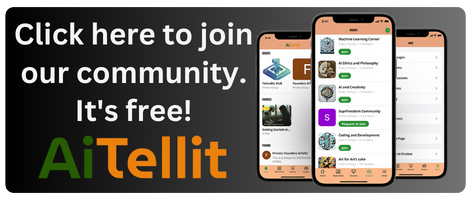How Can AI Be Used in School

Artificial intelligence (AI) holds immense potential for transforming the landscape of education. With its ability to personalize instruction, provide real-time feedback, and streamline administrative tasks, AI has the potential to revolutionize the way schools operate.
From intelligent tutoring systems that offer tailored guidance to AI-driven assessments that reduce evaluation costs, the benefits of incorporating AI in schools are undeniable.

However, as with any technological advancement, there are ethical considerations and privacy concerns that must be carefully addressed. In this discussion, we will explore the various ways in which AI can be utilized in schools, the challenges it presents, and the steps that need to be taken to ensure responsible and effective implementation.
Enhancing Classroom Instruction
Enhancing classroom instruction can be achieved through the strategic integration of AI tools and techniques. AI has the potential to revolutionize education by providing personalized and interactive learning experiences for students. By incorporating AI tools into the classroom, educators can create a more engaging and effective learning environment.
One way AI can enhance classroom instruction is by providing intelligent tutoring systems. These systems use AI algorithms to analyze students’ learning patterns and provide personalized feedback and guidance. This individualized approach helps students learn at their own pace and address their specific needs, leading to improved learning outcomes.
AI can also be used to grade written essays, saving teachers valuable time and providing students with immediate feedback. Additionally, AI can analyze large datasets to identify patterns and trends, helping educators gain insights into student performance and tailor their instruction accordingly.
Furthermore, AI-based assessments can drive down the cost of assessment and make education more accessible. By automating the grading process, educators can allocate more time to instruction and provide timely feedback to students, fostering their growth and development.
Incorporating AI tools in the classroom not only enhances the learning experience but also prepares students for the future. By engaging with AI tools alongside students, educators can provide hands-on learning experiences that develop critical thinking, analytical skills, and creativity. Encouraging students to ask questions and critique AI-generated answers promotes a deeper understanding of the technology and helps students become discerning users of AI.
Personalized Learning With AI
Personalized learning with AI revolutionizes education by tailoring educational experiences to meet the unique needs and preferences of individual students using advanced algorithms. This innovative approach to teaching and learning offers several benefits and opens up new possibilities for student learning in a wide variety of ways:
- Customized Lesson Plans: AI can analyze student data to identify areas of struggle and create customized lesson plans that address specific learning gaps. By providing targeted interventions and adaptive learning experiences, AI helps students progress at their own pace and in their preferred learning style.
- Real-time Feedback: With AI, educators can offer personalized feedback and adapt teaching strategies in real-time. This allows for immediate adjustments to instruction based on student performance, fostering a more effective and engaging learning environment.
- Time Optimization: The integration of AI in education automates routine tasks, such as grading and administrative duties, which frees up educators’ time. This enables teachers to focus on more personalized and impactful interactions with students, promoting deeper understanding and facilitating individual growth.
The use of AI in personalized learning represents an exciting development in education. By leveraging advanced algorithms, educators can provide tailored instruction that meets the unique needs of each student, enhancing their learning experience and promoting academic success.
AI-Powered Student Assessments
The integration of AI in education extends beyond personalized learning, as AI-powered student assessments offer real-time direction for student learning and drive down the cost of assessment. These assessments leverage AI’s scalability and cost efficiency, making education more accessible and cost-effective. AI tools and applications in assessments include natural language processing for grading essays, vision-based AI for grading students’ work, and voice-based AI for diagnosing reading and academic issues. However, implementing AI in student assessments requires addressing concerns around bias in AI algorithms, ethical considerations, teacher training, and privacy and data security.
To engage the audience, here is a table showcasing the different AI applications in student assessments:
| AI Applications in Student Assessments |
|---|
| Natural Language Processing for grading essays |
| Vision-based AI for grading students’ work |
| Voice-based AI for diagnosing reading and academic issues |
AI-powered student assessments provide several benefits. Firstly, they offer real-time feedback to students, enabling personalized learning experiences. Secondly, they drive down the cost of assessment, making it more affordable for schools and students. Lastly, these assessments focus on formative assessment, allowing teachers to identify students’ strengths and weaknesses and tailor instruction accordingly. However, it is crucial to address concerns such as bias in AI algorithms, ensure ethical considerations, provide adequate teacher training, and prioritize privacy and data security. Continuous research and development are necessary to improve AI systems and overcome emerging challenges in AI-powered student assessments.
Improving Administrative Processes With AI
AI technology offers significant potential for improving administrative processes in schools. Here are three ways in which AI can enhance administrative efficiency:
- Streamlining tasks: AI can automate time-consuming administrative tasks such as scheduling, record-keeping, and resource allocation. This frees up valuable time for administrators to focus on more strategic activities.
- Data management: Automated AI systems can assist in managing student data and information, reducing the administrative workload. By organizing and analyzing data, AI tools can provide insights that can inform decision-making and improve overall efficiency.
- Communication and support: AI-powered chatbots can enhance communication with students, parents, and staff, providing quick and efficient support. These chatbots can handle routine inquiries, freeing up administrative staff to address more complex issues.
Addressing Ethical Considerations in AI Implementation
When implementing AI in education, it is crucial to address the ethical considerations that come with its use. As AI becomes more prevalent in schools, it is important to ensure that ethical guidelines are in place to protect the rights and well-being of students and teachers.
One major ethical concern is data privacy. Schools must take steps to safeguard student data and ensure that it is not misused or accessed by unauthorized individuals. Additionally, AI algorithms should be regularly evaluated for biases to prevent discrimination or unfair treatment of students.
Another ethical consideration is the impact of AI on academic integrity. Educators should teach students how to critically analyze and question AI-generated answers to avoid blindly accepting potentially inaccurate or biased information. It is also essential for educators to reassess assignments in the age of AI, encouraging higher-level thinking and challenging students to go beyond what AI can provide.
In public schools, it is important to address ethical concerns related to the socioeconomic divide. Schools must ensure that AI implementation does not further marginalize disadvantaged students or widen existing achievement gaps. Additionally, issues such as intellectual property protection should be considered to prevent unauthorized use or reproduction of educational materials.

Conclusion
In conclusion, the integration of AI in schools offers numerous opportunities to enhance classroom instruction, personalize learning experiences, improve student assessments, and streamline administrative processes.
However, it is crucial to address potential biases, ethical considerations, and privacy concerns to ensure responsible and effective implementation.
By carefully navigating these challenges, AI has the potential to revolutionize education by offering a more accessible, cost-effective, and tailored learning experience for students.







This was very interesting to both read about and watch. Thank you.